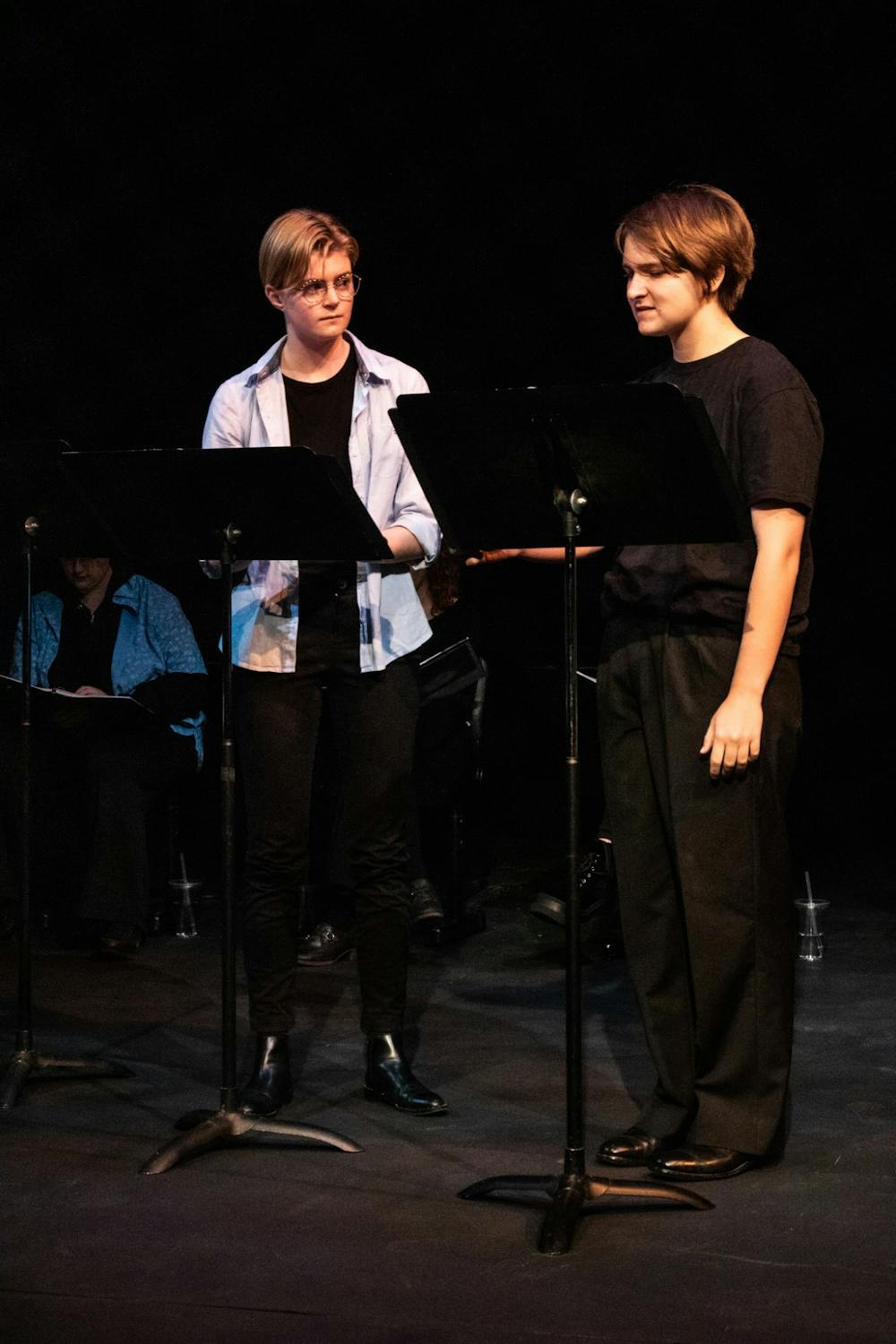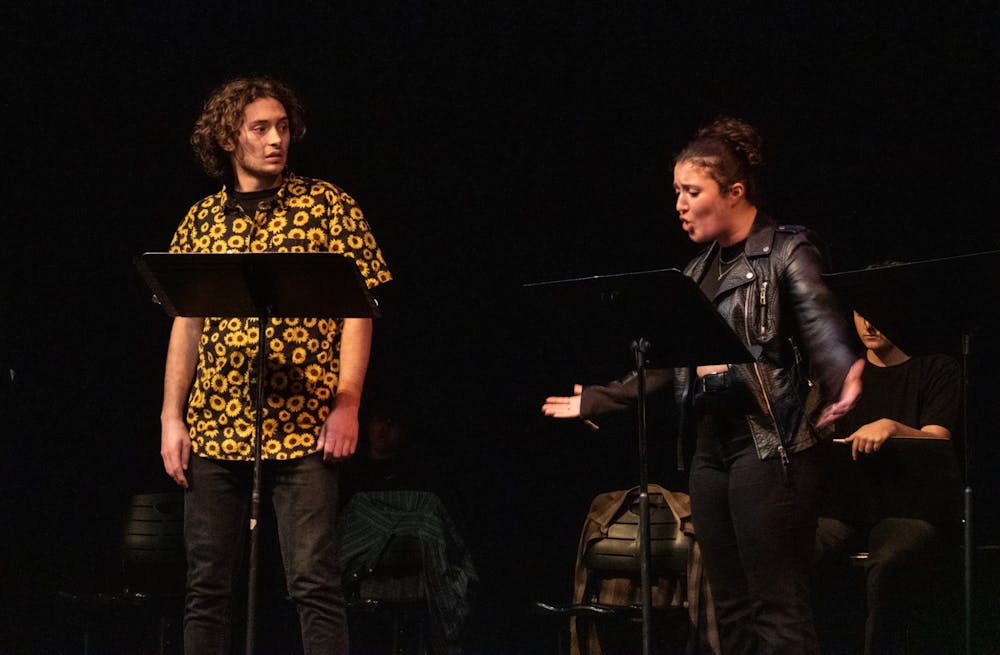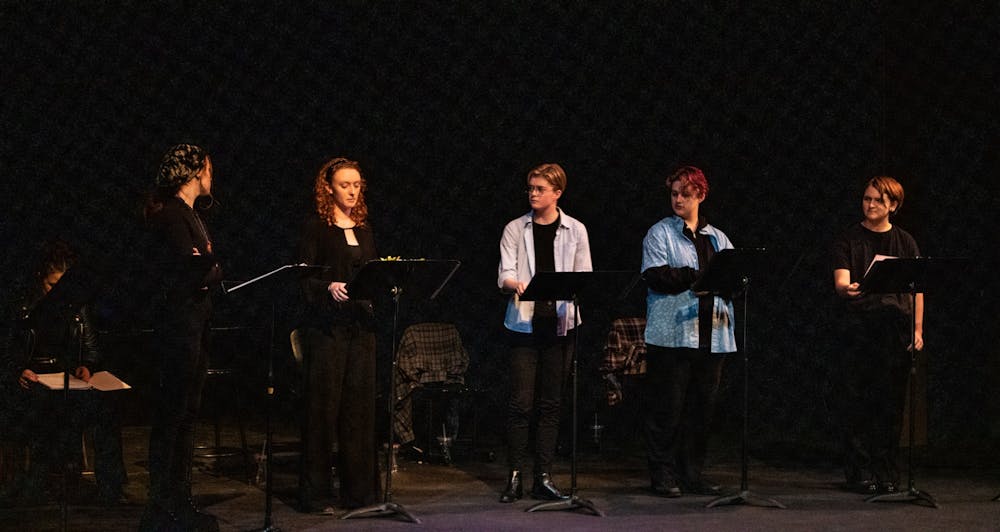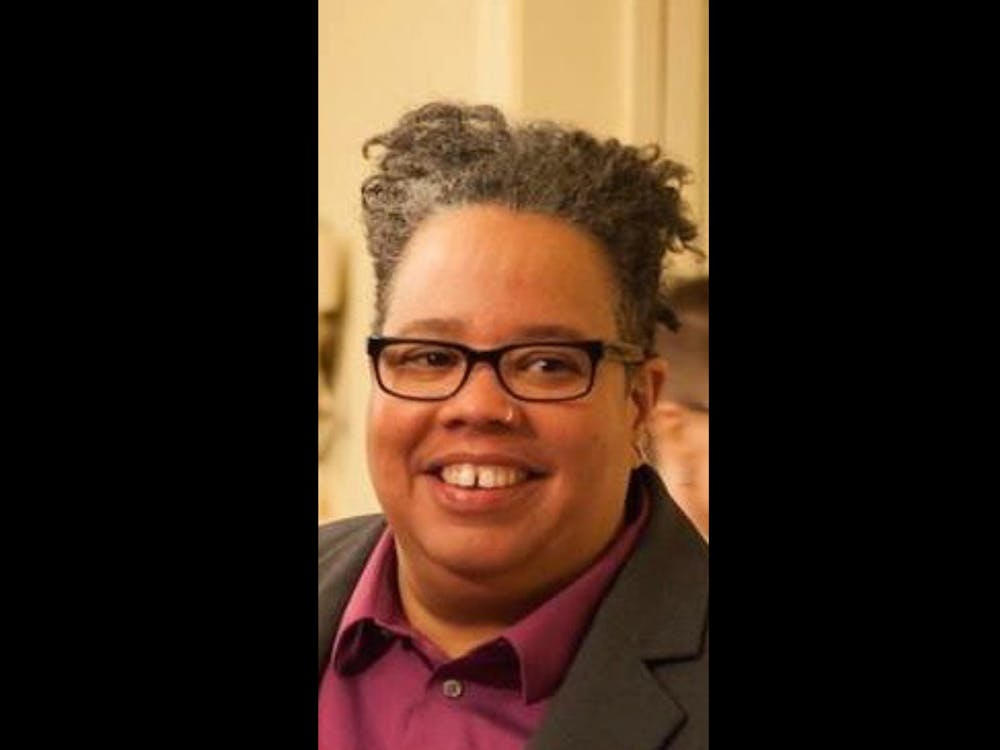I take my seat in Mago Hunt and listen to the bustling of audience members finding their seats and greeting their friends and family. Red, green and blue lights shine down on a row of chairs with jackets hung over the back of them awaiting their actors.
The lights dim and the room comes to a steady quiet. The actors walk on stage, approach a line of music stands in the front and begin to sing as a Catholic children’s choir.
Over the next two hours, I am immersed into “How Can I Keep From Singing,” written by Claire Willett as a new play commission for the University of Portland. The plot focuses on Aidan O’Connor, played by freshman Shane Ruyle, one of the four O’Connor children, who is navigating the loss of both his parents alongside figuring out how his queer identity fits in with Catholicism.
The play begins with a meeting of the LGBTQIA+ alliance in the dorm room of Aidan, Jenny, Val and new British exchange student, Jaime. In this meeting, the friends share their experiences of sexuality meshing with family and religious identities. The camaraderie and feelings of safety in this meeting ring true when coming to college and finding a family away from home that you can truly be comfortable with.
This meeting sparks the beginning of thought-provoking dialogue in this play: Can queer-identifying people remain in the church? How do those identities interact?

Sophomore Am Blank as Jaime Rider and freshman Shane Ruyle as Aidan O'Connor. Photo courtesy of UP Theater.
For some of the students, it was easier to leave the church while for others it acted as a safe space away from their families. These thoughts are revisited towards the end of the play as the characters decide if it would be better to leave the church in order to protect themselves or if being the ones to stay could help the institution progress.
These thoughts and commentaries are deepened as the setting switches to the O’Connor home, where the other three siblings are. Brendan is entering the house to confront his siblings, Shannon and Liam, about Aidan publicly stating his sexual and religious identity during a protest he attended. To add on, Brendan is upset when he finds out Aidan will be bringing his new “friend” Jaime home for Thanksgiving.
Brendan tries to convince his siblings that Aidan shouldn’t have publicly stated how he identifies not only because it’s a private matter but also because he is not gay but bisexual. This furthers the commentary on how we talk about different identities under the umbrella of queerness, looking at how we validate or invalidate certain terms.
The aspect of family defending family is also prominent in this scene, with Shannon, played by sophomore Amber Rose Beeks, defending Aidan from Brendan’s less tolerant opinion. Beeks gives an outstanding performance, making the audience forget she is acting in this scene as she expels Shannon’s genuine love and acceptance of her younger brother.

Sophomore Amber Rose Beeks as Shannon O'Connor and senior Henry Hazzard as Liam O'Connor. Photo courtesy of UP Theater.
As the play progresses, the audience is exposed to the contrasting ideas of a church group and the members of the LGBTQIA+ alliance. Members of the church are showing concern for the O’Connor family, whose parents were very prominent in the church before their deaths. On his college campus, Aidan receives hate and threats from students and professors who don’t believe he belongs in the church anymore.
Aidan has to navigate whether or not the church is still the safe place it was for him when his father was alive. The question of whether or not queer and religious groups can exist together builds upon itself through the end of the play along with the question of institutions’ abilities to truly change, even if progress is slow. Or, do we have to sacrifice certain parts of ourselves in order to be true to our identities?
Keeping spoilers to a minimum, thanks to a new acquaintance with a modern perspective, Aidan is able to confidently decide there is a place in the church for him, even if there are people like his brother who may strongly disagree. Aidan is not however able to tell whether or not he is going on a date with Jaime, which is very relatable.
Willett wrote “How Can I Keep From Singing” to inspire reflection about the intersection of queerness and Catholicism and through her relatable characters, juxtaposing social groups and a sprinkle of British humor — she does just that.
Lulu Heffernan is the Living Section Editor for The Beacon. She can be reached at hefferna23@up.edu.








